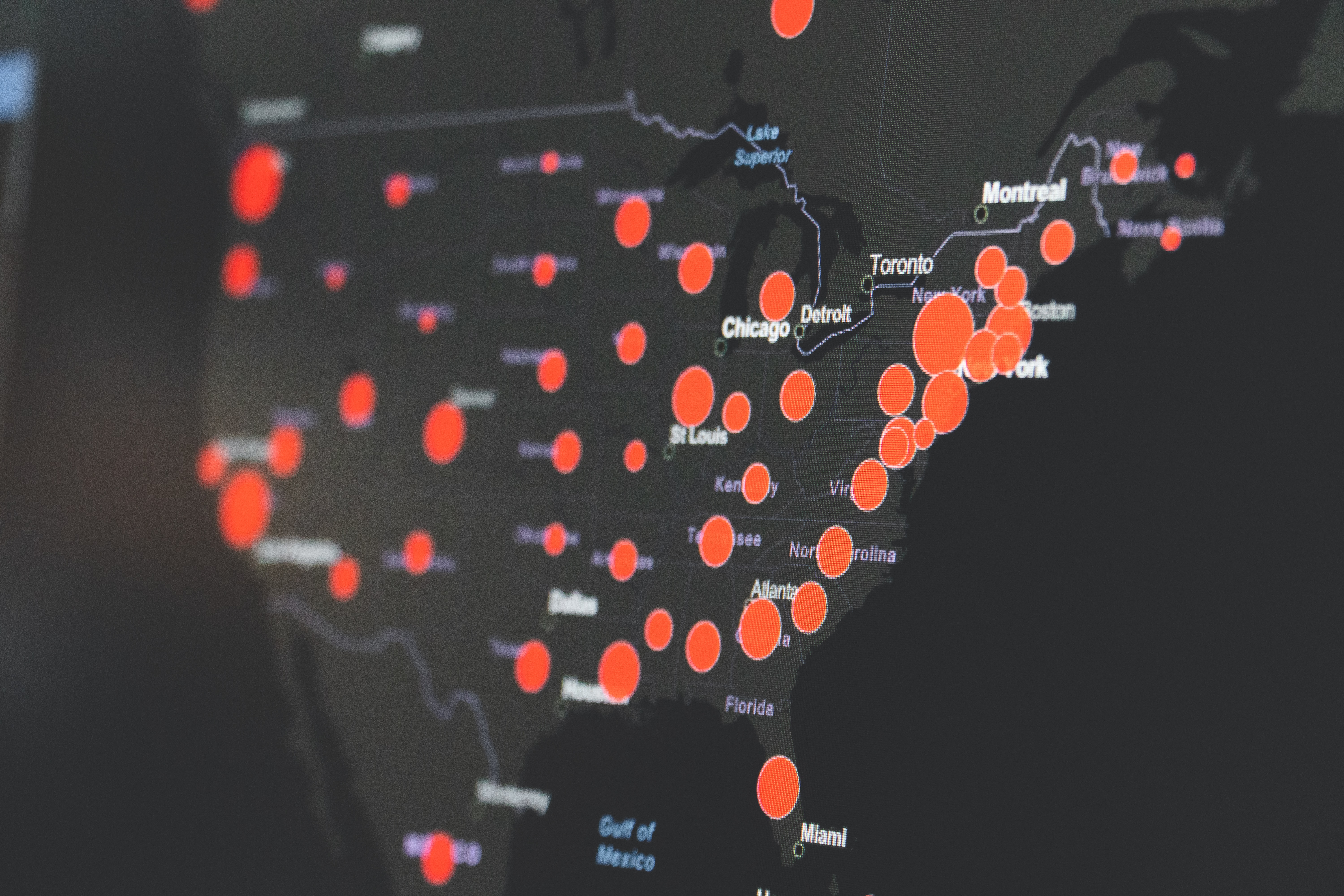By Renny Simone
MAIN PHOTO: A map of the United States, with red circles indicating Covid hotspots (Martin Sanchez on Unsplash)
New data suggest that the coronavirus, which has been described by some as ‘the great equaliser’ due to its virtually universal impact, is not as egalitarian as it first appeared. Factors like race and class are increasingly being recognized as having a significant impact on how – and how badly – people are affected by the virus.
Statistics from the US are beginning to show Covid-19’s disproportionate impact on Americans of color. In Chicago, where 30% of the population is black, African Americans account for more than half of reported cases and nearly 70% of deaths, according to data reported by The Hill. Statistics published by the Louisiana Department of Health tell a similar story: black Louisianans make up less than a third of the state’s population, but account for more than 70% of Covid-related deaths.
Steven Thomas, director of the Center for Health Equity at the University of Maryland, has warned against ignoring race in coronavirus interventions.
“With a colorblind policy — ‘Hey, we’re all in this together’ — we’ll be left with an explosion of Covid-19 concentrated in racial and ethnic minority communities”, Thomas told Politico.
Demographic data from the national epicenter of the outbreak appear to supports Thomas’ view. Two of New York City’s hardest-hid neighborhoods, Corona and Elmhurst, Queens, have large communities of color, according to the 2010 census.
However, neither New York City nor New York State have released race-based data on coronavirus infections – a fact that has drawn criticism from some activists and officials.
In a letter addressed to Mayor Bill de Blasio, NYC Public Advocate Jumaane D. Williams called on the city to “make all data on testing, including disaggregated by race, available to the public.”
Without race-based data, he wrote, it will be impossible to design policy that helps those at greatest risk of contracting the virus. “Tracking and publishing this data is critical to facilitating the allocation and distribution of resources to the areas most in need.”
But the issue is bigger than the immediate crisis, experts of health equity have pointed out. “A pandemic just magnifies the disparities in health care that many communities of color face,” Dr. Summer Johnson McGee, dean of the School of Health Sciences at the University of New Haven, told Reuters.
Ibram Kendi, Director of the Antiracist Research and Policy Center at American University, pointed to other complicating factors – including mass incarceration, homelessness, and undocumented status – that put people of color at higher risk. The “racial pandemic within the viral pandemic”, Kendi explained in The Atlantic, reflected and reproduced race-based inequalities in America.
“Sometimes racial data tell us something we don’t know. Other times we need racial data to confirm something we already seem to know,” he said.
As experts call on the government to make race a focus of response efforts, the debate has made its way to social media. Madonna was roundly criticized for calling coronavirus ‘the great equaliser’ in a video she filmed from her rose-petaled bathtub.
One Twitter user blamed “environmental racism” for the disproportionate death rates of black Chicagoans.
Another called “systemic racism … a matter of life and death.”
New York Times journalist Nikole Hannah-Jones, who covers racial injustice, agreed. “When Covid-19 first hit America hard last month, the narrative was that it was the great equalizer,” she said, in the first tweet of a longer thread. “But those of us who understand racial caste in America knew this could never be true.”




